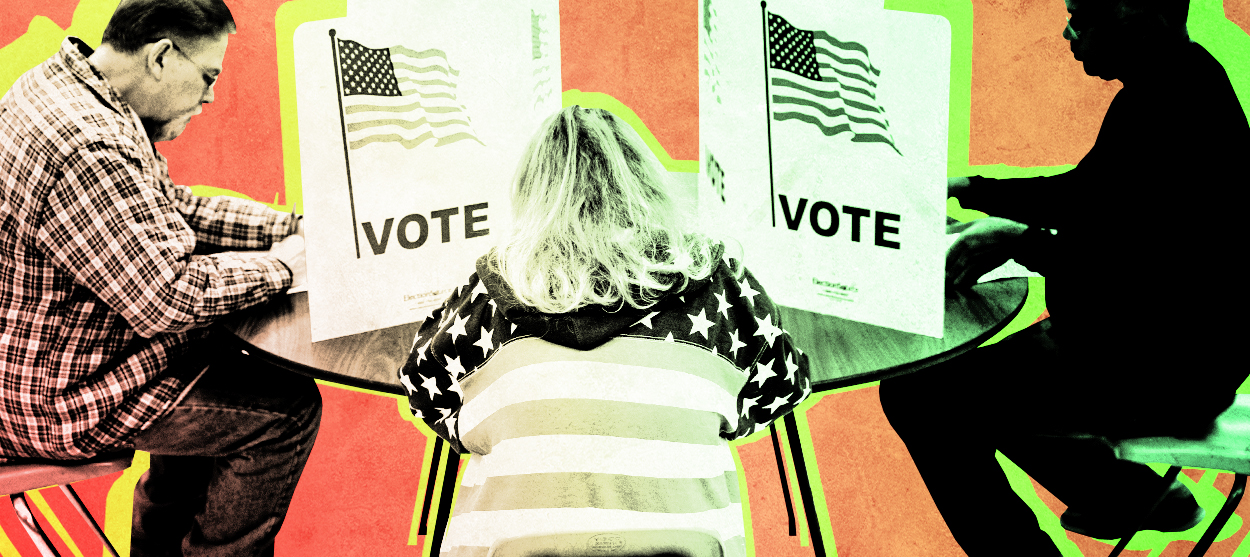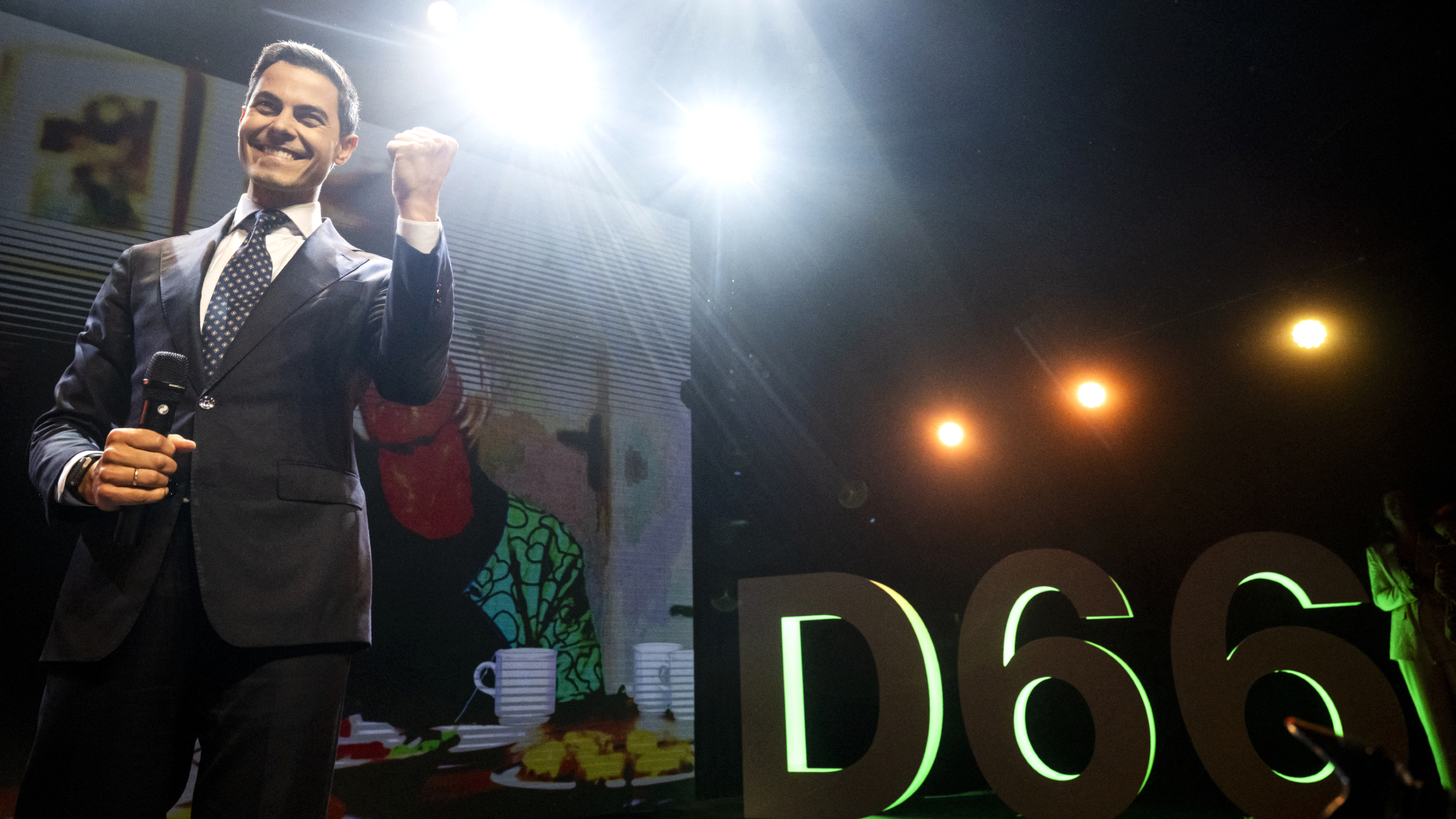Looking under the hood of the 2020 election results
Are America's voting patterns as strange as they seem?


A free daily email with the biggest news stories of the day – and the best features from TheWeek.com
You are now subscribed
Your newsletter sign-up was successful
Joe Biden is the president-elect, whatever that means outside the narrow scope of the privileges afforded to him by the General Services Act of 1963. This is a thing we are doing now. Barack Obama had a special logo made in 2008 for the fake “Office of the President-Elect,” as did Donald Trump in 2016. Apparently no one can wait until the Electoral College votes in December to perform the non-existent duties associated with this provisional title.
Still, we do know who won. Four years ago the blind-sided media responded to the election result by sending reporters on Heart of Darknesss-like excursions to the depths of Michigan and Ohio. HuffPost organized a bus tour to Fort Wayne, Indiana, and similarly exotic locales. Researchers from Third Way discovered that not everyone in the rural Midwest is illiterate. Mark Zuckerberg saw his first tractors and learned what bratwurst is.
I am hoping we can avoid this sort of thing in 2020. The first step is accepting that for all the supposed upheaval of the last four years, this is still the same country. Once you get under the hood our elections do not look all that weird, even if it occasionally seems as if nobody is actually driving the car.
The Week
Escape your echo chamber. Get the facts behind the news, plus analysis from multiple perspectives.

Sign up for The Week's Free Newsletters
From our morning news briefing to a weekly Good News Newsletter, get the best of The Week delivered directly to your inbox.
From our morning news briefing to a weekly Good News Newsletter, get the best of The Week delivered directly to your inbox.
Look at Florida. Democrats there saw every gain they had made in the House two years ago erased. Trump won at the top of the ballot by a clear margin, thanks in no small part to support from Hispanic voters. Yet in the same state an initiative that raised the minimum wage to $15 an hour passed comfortably (one from which Demoratic candidates attempted to distance themselves). This looks inscrutable, but is it really? Everything we know about demography suggests that the median American voter holds views that are roughly to the left of the GOP on economic issues and to the right of the liberal consensus on social issues.
What this means in practice though is not always predictable. Certainly insofar as there is such a force as social conservatism in the United States, it is something that would have been unrecognizable even to moderate Republicans two decades ago. Last week, cannabis was legalized in some of the most right-wing states in the country, confirming my long-held belief that, with the death of Barbara Bush and Jeff Sessions' retirement from politics, the only two living Americans who oppose marijuana are me and the commissioner of the NFL. Meanwhile, in deep-blue California, Silicon Valley spent $200 million convincing residents that the exploitation of Uber drivers is unavoidable; the same voters declined to raise their property taxes, which are among the lowest in the country.
Then there is the elephant in the room: Trump, the most racist president in American history, who somehow increased his showing with every identifiable demographic except white men. Is Charles Blow right to suggest that minorities who voted for the president enthusiastically — in the Rio Grande Valley of Texas, for example — did so in accordance with some deep unwritten law of racism? Or could it be because they, you know, preferred him to the other candidate? Moreover: the president managed to improve his standing with Hispanics, African-Americans, and women of all races while outdoing even his 2016 performance in rural America. Clearly there are shared values here that transcend the fault lines journalists have attempted to impose upon the electoral map.
What all of this suggests to me is that virtually none of the categories we have created for making sense of American politics are of much value, except as rhetorical tools for partisans. (They also make my job a lot easier.) Still, I think it is possible to see certain broad trends. One is that whatever was the matter with Kansas is still wrong. Even though rural Americans are happy to vote on the basis of issues like health care in gubernatorial elections, as they did in Kentucky in 2018, they are still mostly indifferent to what the Democrats have to offer them if the brutal GOP alternative is reduced social services but more take-home pay. (This is also why they were indifferent to, or, more likely, unaware of the corporate welfare in the CARES Act: a check is a check.)
A free daily email with the biggest news stories of the day – and the best features from TheWeek.com
Another is that Trump's rhetoric during the campaign about our great suburbs was misplaced. Democrats are becoming what their opponents were once caricatured as: the party of affluent high-income voters, of people who like the idea of not being racist or sexist but who also think they have earned their high-performing retirement accounts and don't want any of the feel-good talk about confronting climate change to interfere. The fact that they continue to perform well with minority voters in urban America does not change the reality of who is in charge and in what direction shifts are occurring.
The United States is a deeply divided country, one in which voters have conflicted or even contradictory feelings about a wide variety of issues, and often vote in ways that cannot be broken down or explained in ways that make journalists comfortable. This may or may not be a good thing for us, but it is unlikely to change for the foreseeable future.
Maybe The Atlantic should send an expedition to a socially distanced Wine and Canvas in the D.C. suburbs to help us understand it better.
Matthew Walther is a national correspondent at The Week. His work has also appeared in First Things, The Spectator of London, The Catholic Herald, National Review, and other publications. He is currently writing a biography of the Rev. Montague Summers. He is also a Robert Novak Journalism Fellow.
-
 Antonia Romeo and Whitehall’s women problem
Antonia Romeo and Whitehall’s women problemThe Explainer Before her appointment as cabinet secretary, commentators said hostile briefings and vetting concerns were evidence of ‘sexist, misogynistic culture’ in No. 10
-
 Local elections 2026: where are they and who is expected to win?
Local elections 2026: where are they and who is expected to win?The Explainer Labour is braced for heavy losses and U-turn on postponing some council elections hasn’t helped the party’s prospects
-
 6 of the world’s most accessible destinations
6 of the world’s most accessible destinationsThe Week Recommends Experience all of Berlin, Singapore and Sydney
-
 ‘Poor time management isn’t just an inconvenience’
‘Poor time management isn’t just an inconvenience’Instant Opinion Opinion, comment and editorials of the day
-
 Kurt Olsen: Trump’s ‘Stop the Steal’ lawyer playing a major White House role
Kurt Olsen: Trump’s ‘Stop the Steal’ lawyer playing a major White House roleIn the Spotlight Olsen reportedly has access to significant US intelligence
-
 Japan’s Takaichi cements power with snap election win
Japan’s Takaichi cements power with snap election winSpeed Read President Donald Trump congratulated the conservative prime minister
-
 How realistic is the Democratic plan to retake the Senate this year?
How realistic is the Democratic plan to retake the Senate this year?TODAY’S BIG QUESTION Schumer is growing bullish on his party’s odds in November — is it typical partisan optimism, or something more?
-
 The billionaires’ wealth tax: a catastrophe for California?
The billionaires’ wealth tax: a catastrophe for California?Talking Point Peter Thiel and Larry Page preparing to change state residency
-
 Bari Weiss’ ‘60 Minutes’ scandal is about more than one report
Bari Weiss’ ‘60 Minutes’ scandal is about more than one reportIN THE SPOTLIGHT By blocking an approved segment on a controversial prison holding US deportees in El Salvador, the editor-in-chief of CBS News has become the main story
-
 Has Zohran Mamdani shown the Democrats how to win again?
Has Zohran Mamdani shown the Democrats how to win again?Today’s Big Question New York City mayoral election touted as victory for left-wing populists but moderate centrist wins elsewhere present more complex path for Democratic Party
-
 Dutch center-left rises in election as far-right falls
Dutch center-left rises in election as far-right fallsSpeed Read The country’s other parties have ruled against forming a coalition
